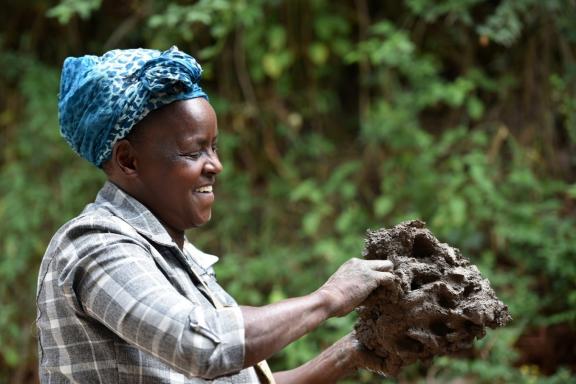The United Nations-backed Green Climate Fund has approved a substantial financing package of $151 million to enhance climate resilience in the Horn of Africa, as announced by the African Development Bank (AfDB) on Monday.
This initiative aims to support approximately 4.6 million people across Djibouti, Somalia, Kenya, Ethiopia, and South Sudan.
The funding is directed towards the AfDB’s “Building Climate Resilience for Food and Livelihoods in the Horn of Africa” program. It emphasizes community-driven and gender-balanced solutions tailored to the unique challenges faced in this vulnerable region.
The African Development Bank outlined that the financing will facilitate sustainable land management practices, harness access to climate-smart technologies, and promote renewable energy initiatives.
Additional supports will include capacity-building for cooperatives, agribusiness, and small enterprises, alongside services such as credit access, climate services, early warning systems, and index insurance.
Martin Fregene, the AfDB’s director for agriculture and agro-industry, highlighted the bank’s dedication to fostering climate resilience. “The mobilization of the Green Climate Fund support demonstrates our ongoing commitment to enhance sustainable agriculture systems in the Horn of Africa, thereby bolstering food security in one of the most vulnerable regions on the planet,” stated Fregene.
The approved financing comprises a grant of $90.7 million and a loan of $60.3 million, with the AfDB tasked with administering the funds. The program is set to launch in the first quarter of 2025.
The Horn of Africa has become increasingly susceptible to climate-related risks, including erratic rainfall, rising temperatures, and more frequent droughts and floods. These challenges have intensified socioeconomic issues and jeopardized the livelihoods of agro-pastoral communities reliant on rain-fed agriculture.
The investment is also expected to have a positive environmental impact. Estimates suggest it could sequester around 14.1 metric tons of carbon dioxide equivalent over its 25-year lifespan, a figure comparable to the lifetime emissions of 600,000 cars. This initiative represents a significant step towards mitigating the effects of climate change while promoting sustainable development in this critical region.



















